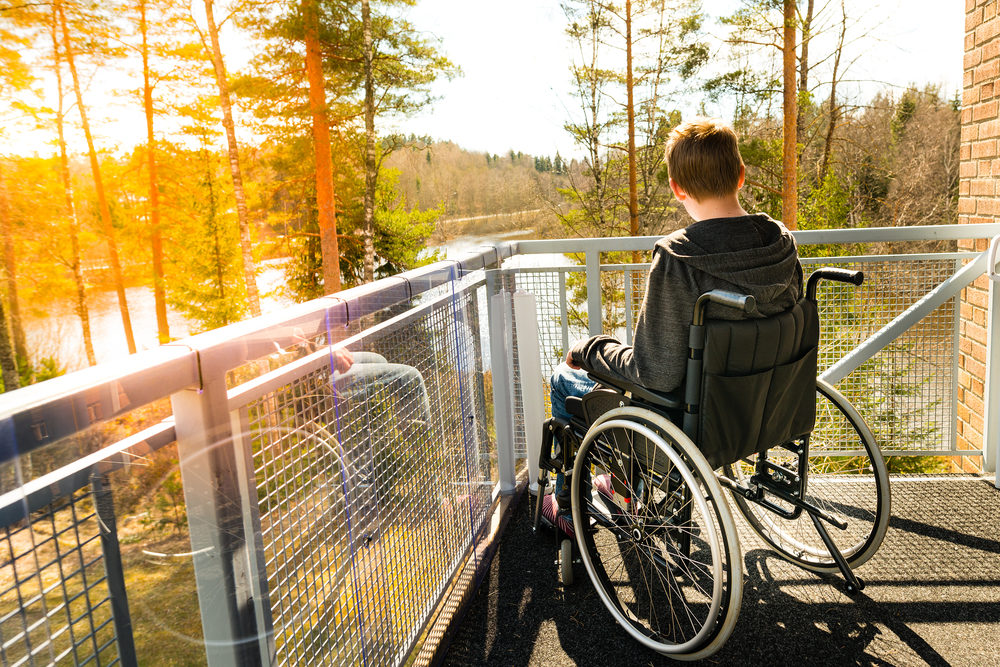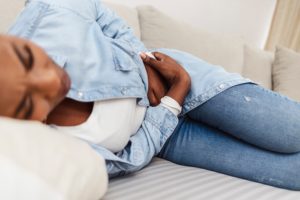
We are all horrified by stories of sexual abuse. Unfortunately, we see it covered in the news daily – everything from clergy and college sports sexual abuse scandals to sexual misconduct in Hollywood. This news coverage can be a good thing because it keeps us thinking about sexual abuse, leading to more prevention efforts. But what’s missing in the sexual abuse discussion is a focus on those segments of our population that are most vulnerable to it in the first place – people with some kind of disability.
People who struggle with a physical or intellectual disability, especially those who cannot move on their own or make sensible decisions, are at much higher risk of being the victim of a sex crime. Some cannot provide consent during a sexual encounter, and sex without consent is rape or sexual assault. In other instances, a victim might not distinguish between typical touch required by a caregiver and touch that is inappropriate. Many disabled people have caregivers who take advantage of their trust to abuse them.
Intellectually disabled people are more than seven times more likely to experience sexual abuse than people without disabilities. Most victims are under the age of 30. Eighty-three percent of disabled females and 32 percent of disabled males have been victims of sexual abuse – about 19,000 people annually. And almost half of those take place in residential facilities designed to keep vulnerable people safe, most of those perpetrators being fellow residents. An astonishing 96 percent of offenders were someone the victim knows and trusts.
Despite these high numbers, just three percent of these events are ever reported, and even less make it to court. Many abusers know this and realize that their crime is very unlikely to be reported because the victim cannot recall events accurately or is too afraid.
Related: Sexual Abuse Victims Given More Time to Seek Justice in New Jersey
The rare cases that do go to court are not quickly settled. One case in Georgia found a man guilty of raping a young woman with Down syndrome three times in one night. The decision was overturned because the judge said the young woman was not behaving “like a victim” and questioned why she had not come forward sooner, despite medical evidence that an assault had occurred. The offender was retried a few years later and convicted, but those few years had to have been very traumatic for the victim.
How New Jersey Is Protecting Vulnerable People from Abuse
In 2016, New Jersey established the New Jersey Task Force on Abuse of Persons who are Elderly or Disabled in order to evaluate current policies and explore and recommend solutions for keeping the elderly or disabled from becoming victims of abuse, neglect and financial exploitation. Another task force was founded in 2019, specifically to prevent sexual violence against the developmentally disabled. Some of the findings have been alarming. Statistics suggest that a disabled person’s risk of abuse is more than double that of a person without a disability. Nearly half of dementia patients will suffer abuse at some point. Also, between one quarter and 90% of adults with disabilities will experience some kind of perpetrated violence, and an abused older person is 300 percent more at risk for death.
Several pieces of legislation have been added to New Jersey law as a path to better prevention and representation for disabled victims. One notable example is the Stephen Komninos’ Law, named after a victim who passed away at a young age. It requires two unannounced yearly visits to residential homes by the Department of Human Services and a time limit on reporting abuse subject to criminal penalty.
The 2016 “Safe Care Cam” program loans free surveillance equipment to state residents who have a suspicion that their family members in residential care are being abused. The Office of the Ombudsman for Individuals with Intellectual Disabilities and their Families was established by the State Legislature in December 2017 to support and advocate for victims and requires the managing Ombudsman to be a trained professional with good judgment and integrity. Also, the New Jersey Judiciary established a requirement that all Superior Court judges must receive specialized training “related to abuse, neglect and financial exploitation of elderly and disabled adults.”
In addition, the child advocacy center in Newark, Wynona’s House, which is designed for abused children, has also become a place where intellectually disabled adults are taken after they have suffered sexual violence.
Many encouraging steps have been made in New Jersey to prevent and protect intellectually disabled victims from all forms of abuse. But there’s still a long way to go, and justice is unlikely without legal representation. The team at D’Arcy Johnson Day has experience in sexual abuse cases and will do everything we can to make sure your voice is heard. You may be a victim, but you don’t have to stay that way. Contact us here or call us toll-free at 866-327-2952 for your free consultation.

From sexual abuse matters to personal injury and workers compensation, Jessica brings a wealth of experience to her practice at D’Arcy Johnson Day. Her fluency in both English and Spanish enables her to help so many members of the community, as she focuses on accident and personal injury cases, work injuries, medical malpractice, immigration, criminal law, and municipal court proceedings among other areas of practice.














Comments for this article are closed.